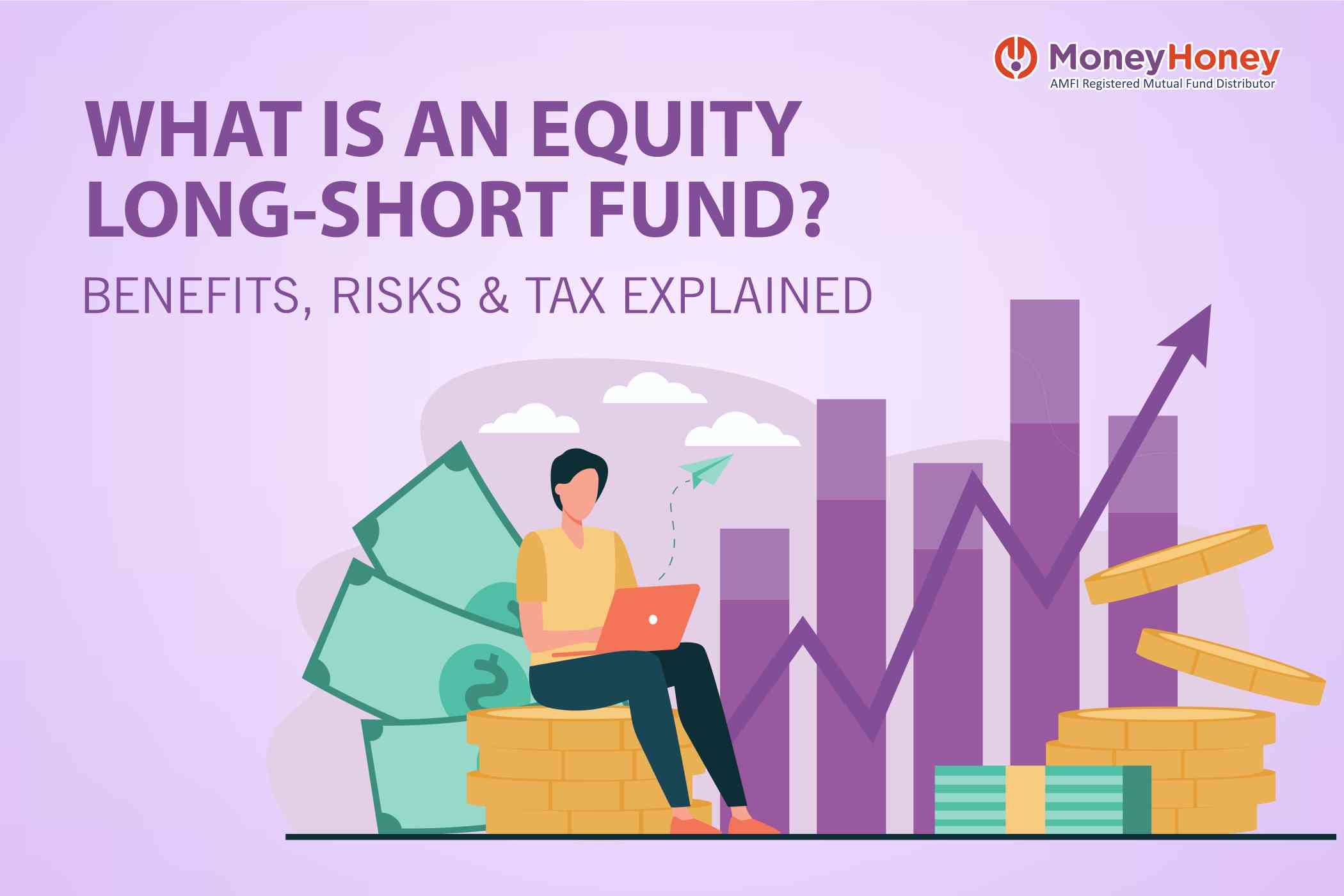Mutual Funds and the Evolution of Investment Options in India
Mutual funds are on the verge of becoming a household name in India when it comes to investing in equities. Young investors have been exploring the world of investments with an open mind compared to previous generations. Capital market regulator- Securities & Exchange Board of India, has approved the launch of specialised investment funds (SIF) toallow mutual funds offer evolved investment strategies to the public at large. Under this new category of product, Equity Long Short Fund is the first type of product. Let’s look at this in detail and how it is expected to work for the investor.
What Is an Equity Long-Short Fund (ELSF)?
To put it simply, Equity Long Short Fund (ELSF) is a flexi-cap equity fund with a provision to go short. Let’s elaborate further. A flexi-cap fund allows a fund manager to buy shares of companies of all sizes – large cap, mid cap and small cap, as per his discretion. There are no internal thresholds in terms of exposure to each of these three segments. The ELSF will allow the fund manager to buy shares of companies of all sizes. However, the twist is the fund manager can also short sell equities using derivative instruments such as futures and options. A flexi-cap fund is a long-only product, whereasELSF is a long-short product, in industry parlance.
Investment Allocation and Short-Selling Limits
An ELSF must have a minimum 80% of the money invested into equities. An ELSF's short positions are capped at 25% of its assets under management of the scheme. This should work wonderfully for investors looking for improved risk reward compared to a long only equity product. A long-only product, a flexi-cap fund falls in line with the falling market. A fund manager of a flexi cap fund can allocate some money to defensive stocks in an attempt to contain downside. But he or she can no way benefit from the falling markets. An ELSF, however, allows a fund manager to short stocks.
Understanding Short-Selling and Its Role in ELSF
For beginners, shorting a stock means selling a stock that one does not own, with an intention to buy it back at a later date using derivative instruments on that stock. At any given moment of time the fund manager can buy stocks on which he has a constructive view, and short-sell those stocks which he expects to fall. In a volatile market, the 25% short positions can effectively make money for the investors. ELSF thus can not only contain downside for the investor but also identify weak stocks and make money by short selling them when the markets are in a turmoil. In a rising market, if a fund manager bets on a few short selling opportunities, and the stocks do not fall as much, then the returns may appear muted compared to a long-only flexi-cap fund. Investors can expect a relatively smoother ride from an ELSF as compared to a flexi-cap long-only mutual fund scheme.
Fund Management and Cost Considerations
ELSF are actively managed products. The role of a fund manager is vital in the working of an ELSF. It will be interesting to know the expense ratio of these schemes. Also, short-selling may involve increased costs on account of roll-over, compared to a long only product, impacting post expenses returns offered by ELSF We may see vide variations in returns offered by various ELSFs.
Ideal Investment Horizon and Minimum Investment
Since this is a long-short strategy a fund manager needs to be given long enough time to execute his strategy. Ideally one market cycle – or say a period of five years is the minimum holding period for investors considering an investment in these schemes. Minimum investments in these schemes stand at Rs 10 lakh. That is a good entry point. This ensures that most first time investors will stay out. But this may suit the needs of investors who have been investing in mutual fund schemes but are finding it difficult to invest in a portfolio management service (AIF) or alternative investment fund that ask for minimum investment of Rs 50 lakh and Rs 1 crore respectively.
Taxation Benefits of Equity Long-Short Funds
Another benefit of investing in an ELSF is the equity taxation the investor enjoys. Gains booked afterholding ELSF for a minimum period of one year are considered long term capital gains and taxed atthe rate of 12.5% which is concessional for individuals in higher income slabs.
Who Should Invest in ELSF?
Investors should first build their mutual fund portfolios geared for their financial goals. As they get acquainted with the long-term investment philosophy and the market behaviour, they may find ELSF suitable if they are keen on an equity product that offers less volatile payoffs in a tax-efficient manner over the long term.
Disclaimer: This report is prepared in his personal capacity and neither the Author nor Money Honey Financial Services Pvt Ltd assumes any responsibility or liability for any error or omission in the content of the article. Investments in mutual funds and other risky assets are subject to market risks. Please seek advice from an investment professional before investing



